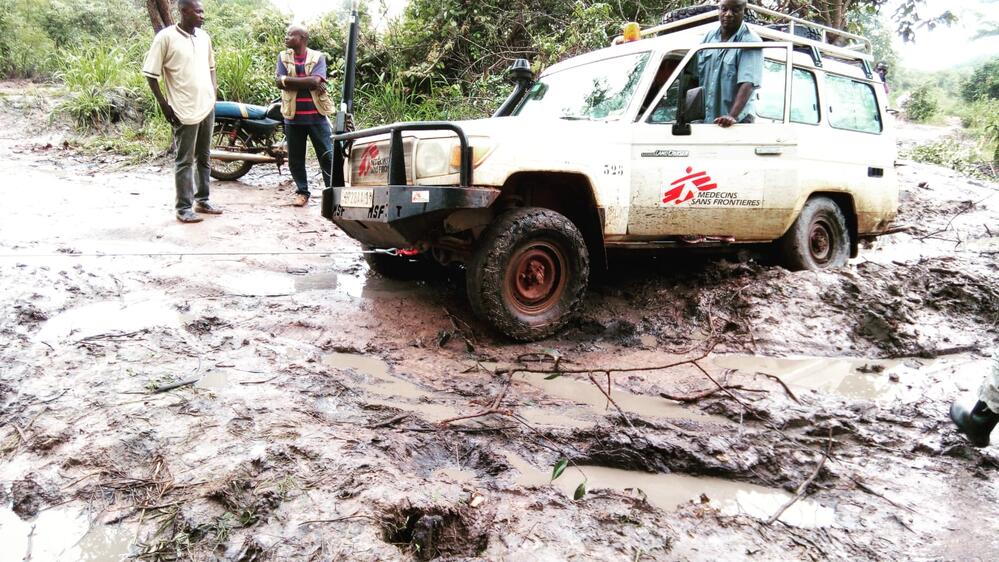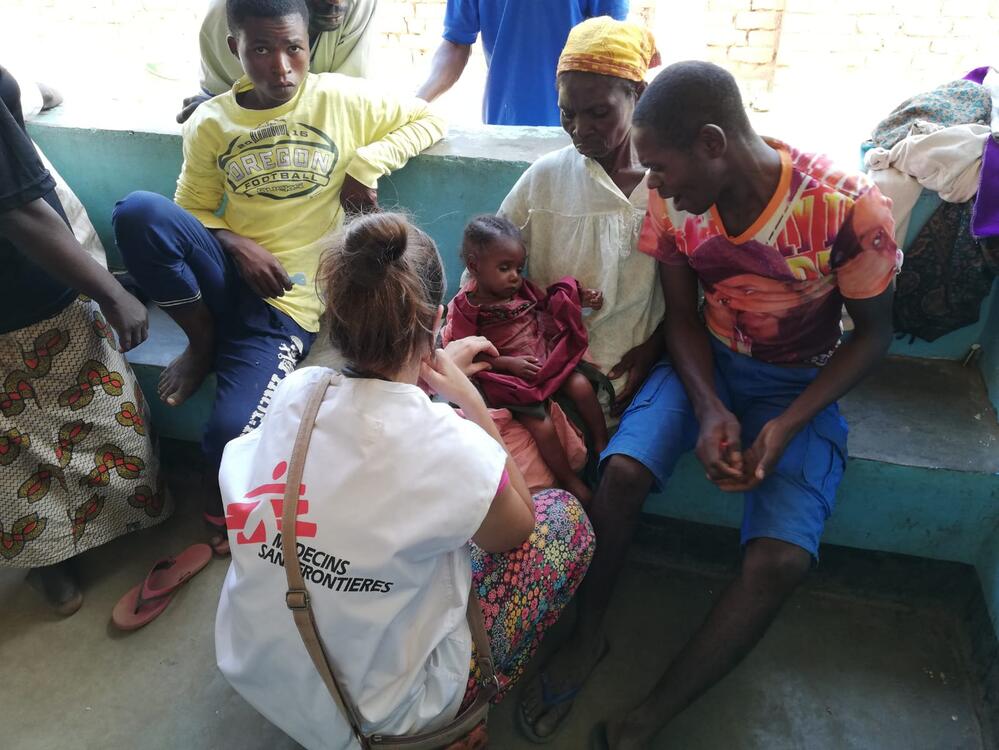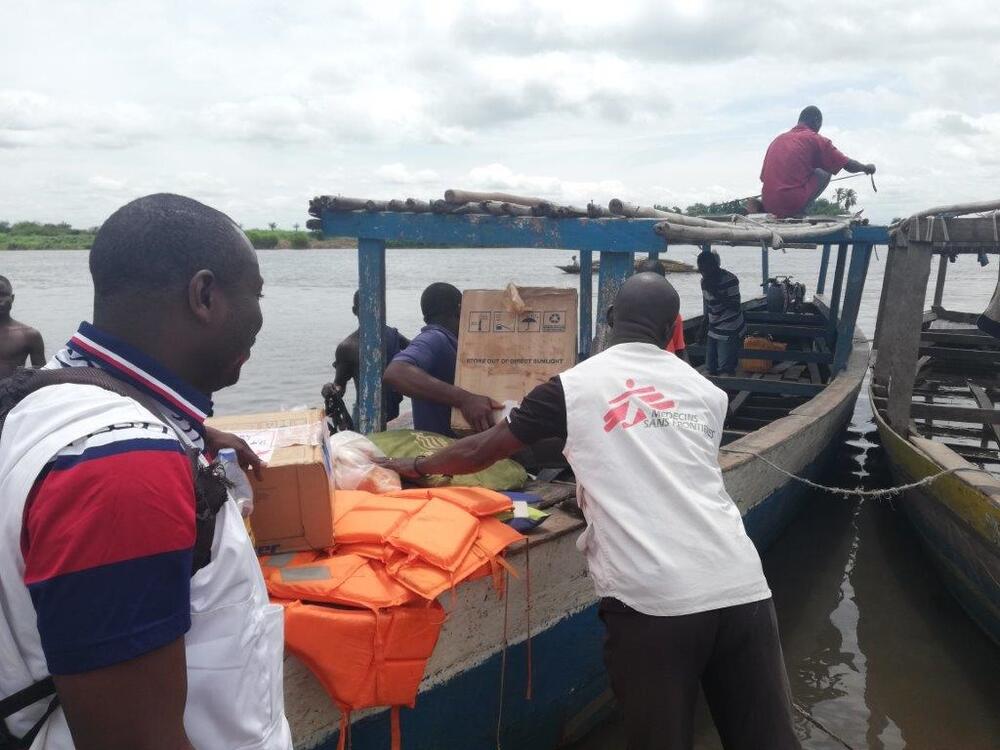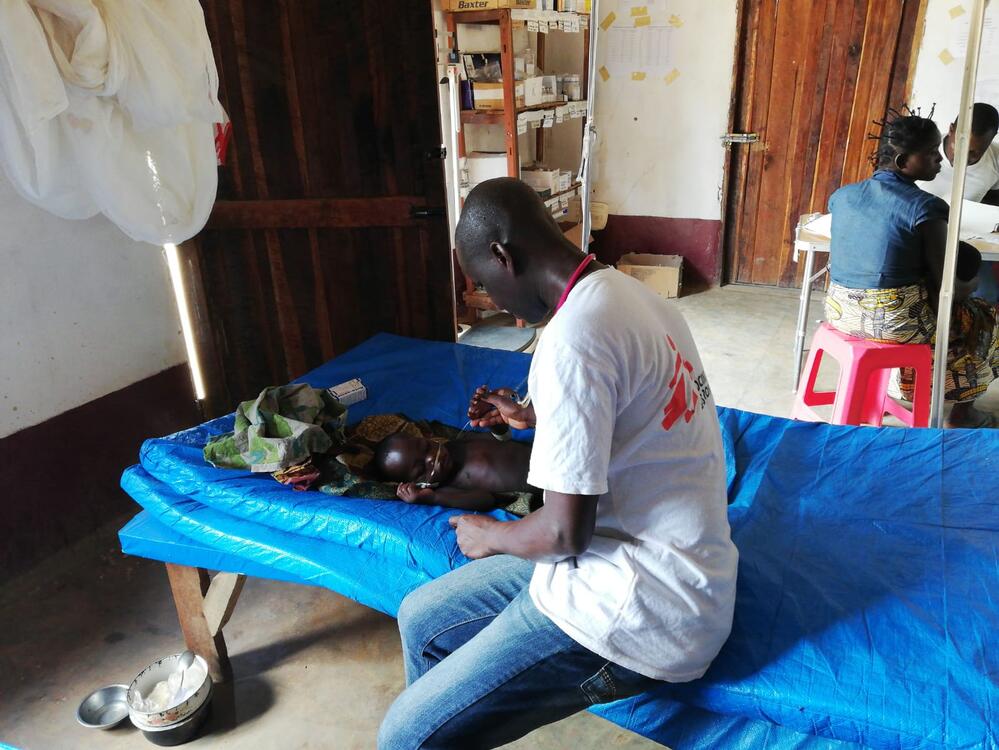Measles in DRC: "We use motorbikes and canoes to get care to remote villages"
In Democratic Republic of Congo (DRC), a measles epidemic is currently affecting large parts of the former province of Katanga.
Doctor Natalie Roberts, from MSF’s emergency response team, explains the challenges of protecting children from this deadly and highly-contagious disease:
"In March 2018, a measles epidemic was declared in a number of areas known as 'health zones' across the former province of Katanga.
Covering an area the size of Spain, the region is now split into four smaller provinces known as Haut-Katanga, Haut-Lomami, Lualaba and Tanganyika.
Over the course of the year, the epidemic spread. And, by December 2018, every health zone in every province had declared either suspected or confirmed cases of measles.
The outbreak complicated the already huge needs in paediatric health throughout the provinces, across whose remote areas people are scattered in hard-to-reach villages.
A deadly disease
Measles is highly infectious and puts children at high risk of developing other serious illnesses. This can include severe malnutrition or respiratory tract infections. Children in the Katanga region also frequently suffer from malaria.
It is very difficult to ensure that children in such remote areas can access necessary basic healthcare – which is why, when they do arrive at hospital their illness is already in an advanced stage.
We suspect that many children never manage to reach basic medical treatment and so never get vaccinated.
Information from local communities suggests the mortality rate of children under five is extremely high in certain areas of Haut-Lomami province. Young children are dying in communities where their deaths are not always reported.
Mass vaccinations
Measles epidemics take hold in areas where not enough people have been previously vaccinated. To protect a population from an epidemic, 90 to 95 percent of people – and ideally 100 percent – must be vaccinated.
"Paved roads don’t exist in the region and travel can be extremely difficult, particularly in the rainy season. It can take days to move between different areas even in four-wheel-drive vehicles."
By vaccinating people as soon as measles cases are reported, we aim to prevent more children from catching the disease and to stop its spread. To have the greatest impact, we target areas where the epidemic has only just begun – as we are now doing in Lualaba province.
However, sometimes it’s already too late and this isn’t possible…
When the epidemic takes hold
In areas that have already experienced a major epidemic over several months, a mass vaccination campaign is not necessarily the most appropriate response.
Even detecting the epidemic early enough is difficult as obtaining biological confirmation of measles can take time - the only validated laboratory is in the capital, Kinshasa.
Added to this, the delivery of vaccines and other supplies to these remote locations can also be massively time-consuming and complex.
So, when the disease has already taken hold in a community, mass vaccination alone has limited impact. Of course, the vaccine is not a treatment for children already suffering from measles.
Instead, we assess the community and make sure sick children are treated as soon as they are identified.
Even when a measles epidemic is already widespread, we can still save lives.
Motorbikes and canoes
Our priority is to use mobile clinics to reach children living in the most severely affected areas. We aim to treat children within their local community and vaccinate any who have not previously been vaccinated.
But, we face huge logistical constraints. Paved roads don’t exist in the region and travel can be extremely difficult, particularly in the rainy season.
It can take days to move between different areas even in four-wheel-drive vehicles. To reach more remote locations, we have to use motorbikes and even canoes, which makes it impossible to transport large quantities of medicines, vaccines or therapeutic food.
Our impact
When the epidemic was declared in March 2018, we began our first response in Haut-Katanga province. By September, our teams had vaccinated 231,646 children and treated 3,334 measles cases across the province.
We then deployed significant resources to neighbouring Haut-Lomami province. In collaboration with the local ministry of health staff, our teams treated 393 children with severe measles and 2,957 milder cases from December 2018 to February 2019.
So far, we have vaccinated 64,629 children against measles in areas of Haut-Lomami.
A recurring epidemic
Since 2011, the former province of Katanga has had a large measles epidemic once every two or three years.
The Ministry of Health faces the same constraints that we do: limited supplies due to transportation difficulties; a lack of electricity for vaccine refrigerators; difficulties in reaching communities.
Routine vaccination coverage is therefore inadequate in many locations, which means epidemics are recurrent.
MSF has regularly carried out emergency measles vaccination campaigns in the region. Although our goal is to respond early in the epidemic, we still often fail to meet this objective due to these challenges.
We are constantly trying to find new solutions to this recurrent problem."
MSF in the Democratic Republic of Congo
The second largest country in Africa by area, the Democratic Republic of Congo (DRC) is rich in resources but plagued by conflict.
It has endured decades of multiple overlapping crises and severe limitations in medical capacity. Médecins Sans Frontières/Doctors Without Borders (MSF) run some of its largest programmes in DRC, working in 21 of the country’s 26 provinces.
We provide services ranging from basic healthcare and nutrition to treatment for victims of sexual violence and people living with HIV/AIDS. In 2019, we responded the country's largest outbreaks of measles and Ebola to date.



